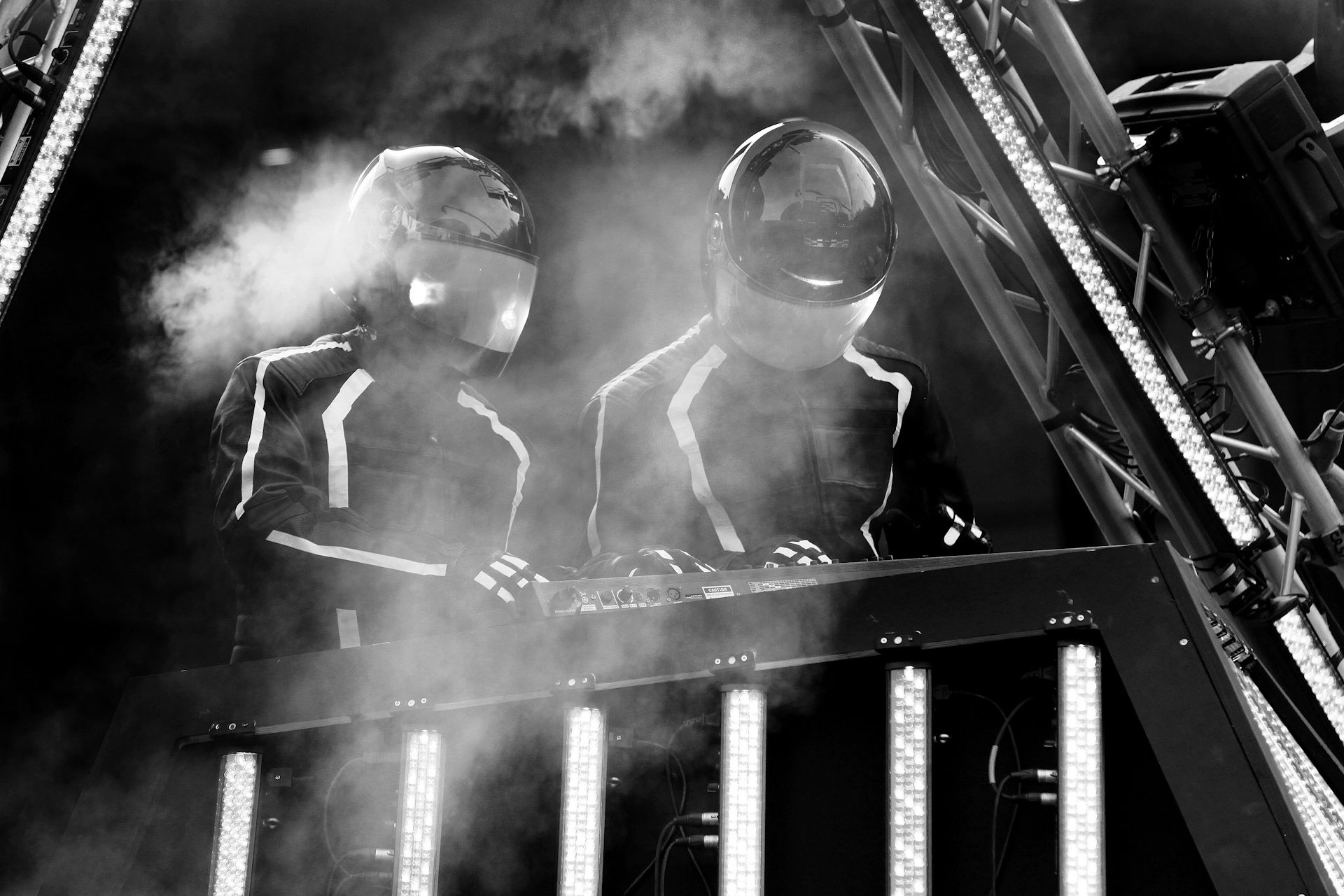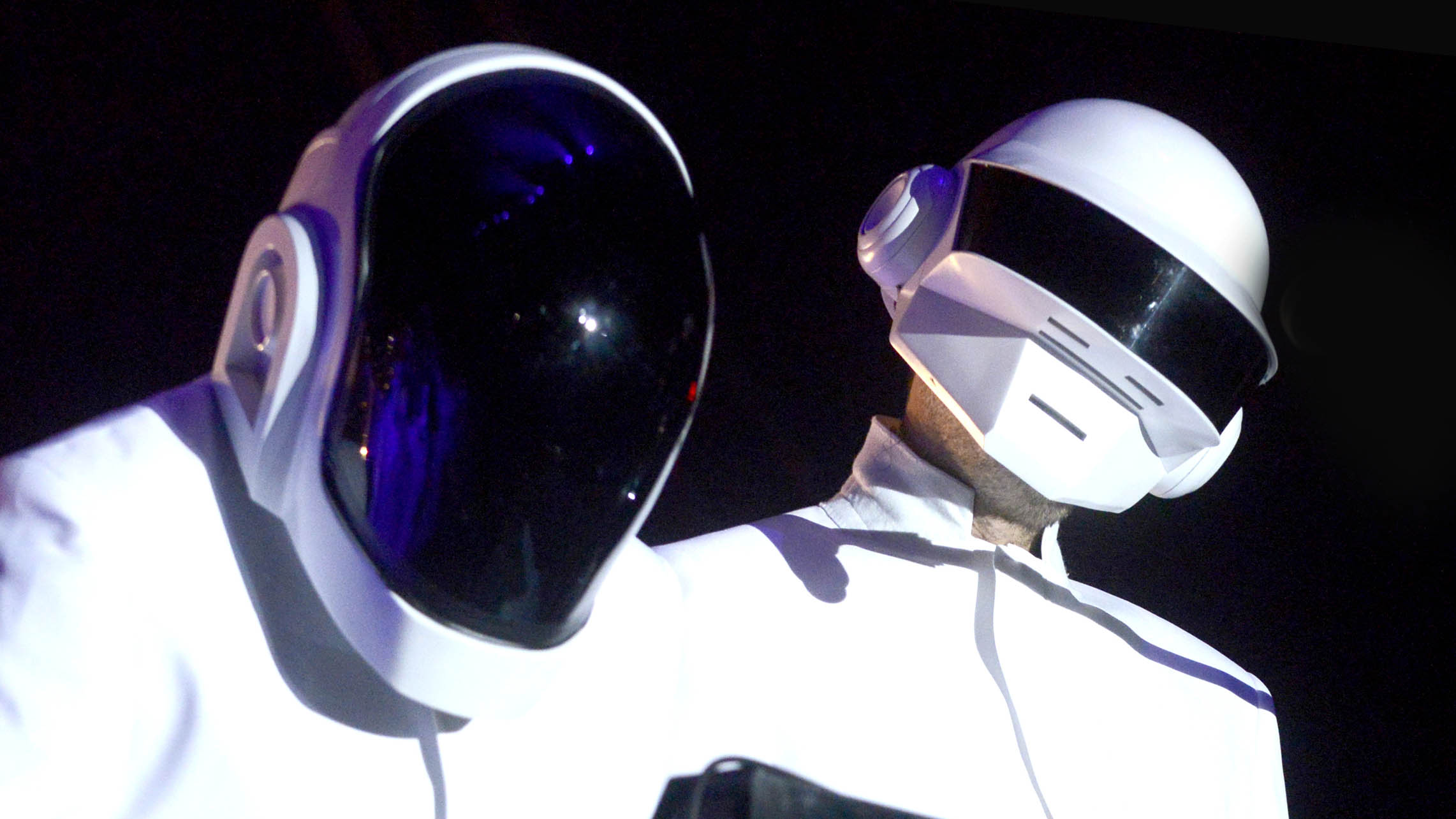


In the United States, "One More Time" peaked at number 61 on the Billboard Hot 100 (tying with previous Daft Punk hit, " Around the World") by June 2013 it had sold 1,052,000 digital copies there, and became Daft Punk's first million-seller. In both Daft Punk's native France and Canada, "One More Time" topped the national singles charts. Like the rest of the feature film, it was directed by Kazuhisa Takenouchi under the visual supervision of Leiji Matsumoto. The video features a pop band of humanoid blue-skinned aliens performing the song to a crowd on their home planet while a mysterious force approaches it. The music video features scenes that would later form part of Interstella 5555: The 5tory of the 5ecret 5tar 5ystem, a 2003 anime film that acts as a visual realisation of Discovery. "One More Time" was sampled and incorporated in Miliyah Kato's song " Future Lover -Mirai Koibito-" in January 2016. A live version of "One More Time" coupled with "Aerodynamic" is featured in the album Alive 2007. The "short radio edit" of "One More Time" from the single was later included in the compilation album Musique Vol. The remix album contains a remix of " Aerodynamic" by Daft Punk featuring elements of "One More Time". An "unplugged" rendition was included in the remix album Daft Club. The single also contains an eight-minute version of "One More Time" featuring extended vocals absent from the album version. A representative of GM Musipro said they had never been able to locate Johns, and that they would follow up on the matter after an investigation by the Los Angeles Times in 2021. A representative for Daft Punk confirmed the use of the sample and that the duo continued to pay royalties to GM Musipro, the French publishing company that owned the rights to "More Spell on You". Johns, who has been destitute for decades, did not receive royalties for the sample. "One More Time" contains a sample of the 1979 disco song "More Spell on You" by Eddie Johns, which is uncredited in the Discovery liner notes. Bangalter remarked that, "The break is so long it's not even the break. The album version of the track includes a two-minute breakdown. It's one side of our music that people might be sensitive to and others might not. Love and hate are interesting because it's deep and intense. The worst thing when you make art is for people to not even be moved by it. The healthy thing is that people either loved it or hated it. Criticising the Vocoder is like asking bands in the '60s, 'Why do you use the electric guitar?' It's just a tool. We love to be able to use instruments the way we want to. It's just music, it's just entertainment, and as long as we believe in it that's what is important. We liked the track, Romanthony liked it, we can be disappointed about what they said about the song, but still we liked it. We care less now than we used to about what critics say about our music. He never had his voice treated like an instrument like that." He also elaborated: "He has done a lot of different things and he always tries to innovate, which is what we like to do on our records. What they didn't see was that you could use those tools in a new way instead of just for replacing the instruments that came before." According to Bangalter, Romanthony enjoyed the alterations to his vocal on the track. It reminds me of the late '70s when musicians in France tried to ban the synthesizer. When questioned on the effects, Thomas Bangalter stated "A lot of people complain about musicians using Auto-Tune.

The song was considered an example of French house's frequent use of audio filters, featuring heavily processed auto-tuned vocals. As stated by Guy-Manuel de Homem-Christo, "we thought the funkiness of his voice fit the funkiness of the music." It prominently features a vocal performance written and sung by Romanthony. The song was completed as early as the beginning of 1998, where it remained "sitting on a shelf" until its eventual release on 13 November 2000. Daft Punk considered "One More Time" to be the link connecting Homework to Discovery.


 0 kommentar(er)
0 kommentar(er)
